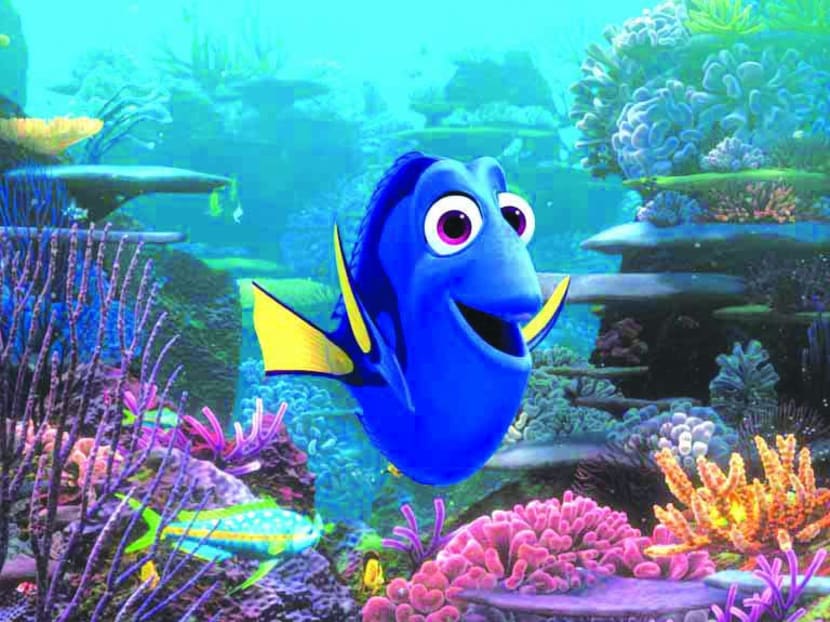Finding Dory could lead to dangerous demand for blue tangs as pets
LOS ANGELES — Finding Nemo centres on an adorable clownfish who is separated from his father before being reunited to live out his days, swimming wild and free in his ocean home. The success of the 2003 film created a huge demand for the finned cuties, as fans of the Pixar hit flocked to pet stores to buy their own Nemos.

Dory, voiced by Ellen DeGeneres, returns for the sequel, Finding Dory. Photo: AP
LOS ANGELES — Finding Nemo centres on an adorable clownfish who is separated from his father before being reunited to live out his days, swimming wild and free in his ocean home. The success of the 2003 film created a huge demand for the finned cuties, as fans of the Pixar hit flocked to pet stores to buy their own Nemos.
Despite the fact that the film had a conservation theme, with Nemo briefly enduring a miserable stint in a dentist office tank, sales of the creatures grew an estimated 40 per cent. By 2012, the orange and white stripped fish were the fifth-most imported species in the United States. In the process, wild populations of clownfish in countries such as the Philippines were decimated, ecologists say.
“Somehow the message of the film got lost,” said Karen Burke da Silva, co-founder of the Saving Nemo Conservation Fund, an educational non-profit. “People got so enamoured of the beauty and the charismatic personality of the clownfish that they wanted one for their own.”
Now that Finding Dory, the hugely popular sequel to the 2003 original, is dominating the box office, it has scientists and animal rights groups worried that there will be a similar demand for regal blue tang fish, Dory’s species, and could wreck havoc on exotic fish populations.
Disney, Pixar’s parent company, and animal rights groups such as the Humane Society and For the Fishes are seizing on the film to try to educate people about how to responsibly buy pet fish. Unlike clownfish, blue tangs cannot be bred in captivity and are exclusively taken from the wild.
“This species cannot endure increased demand,” said Rene Umberger, executive director of For the Fishes. “It’s already in decline in the wild.”
She noted that most blue tangs can reach up to a foot in length, making them too big to fit comfortably in home aquariums. While these species can live for 20 or 30 years in the wild, some captured blue tangs struggle to stay alive for even a few years in captivity, she said.
“These animal suffer terribly by being in a tank of that size,” said Umberger.
There are also negative environmental consequences to the way that blue tangs and clownfish are captured. The people who collect the fish often use cyanide that kills coral and other animals, and leads to illness and even death in the captured clownfish or blue tangs.
The Humane Society and For the Fishes have launched a mobile app to give consumers information about buying fish and is using social media to talk up the dangers of buying blue tangs for pets. In another digital push, the Saving Nemo Conservation Fund has created an Instagram campaign, encouraging people to post pictures of themselves making fish kisses under the hashtag #FISHKISS4NEMO as a way of attracting attention to conservation issues.
For its part, Disney is distributing a “responsible fish ownership” guide digitally and is working with stores such as PetSmart and Petco to have their messaging and literature available in their aquarium aisles. The studio has partnered with the Monterey Bay Aquarium on a video about how to select a fish for a home aquarium. It will release the film on Disney social media channels this week. In addition, the company is working with the Association of Zoos and Aquariums on a programme to support tang conservation and sustainability. Disney declined to comment, but Umberger praised the studio for its efforts.
“It’s a great step forward,” she said. VARIETY.COM/REUTERS





